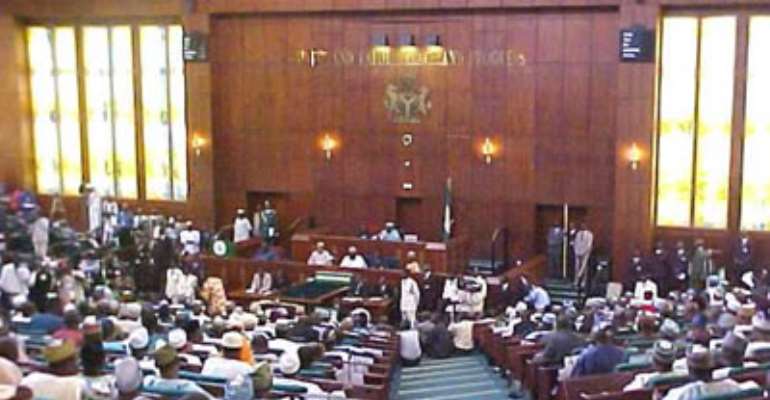Delay In Passage Of 2013 Budget: We have Done Our Part- Senate

The Senate yesterday said there was no cause for alarm following the delay in the final stages of the passed 2013 budget stressing that it was undergoing the normal bureaucratic fine-tuning.
The early submission and passage of the budget last year by the executive and legislature respective was greeted by applause as it signalled a major turning point in the
However after the passage December 20, 2012, the where about and the delays in finalising the budget has began to become a cause of concern.
Ideally after the National Assembly passes the budget, it returns to the executive via the clerk of the National Assembly.
But hopes of early signing of the budget by President Goodluck Jonathan seems to be facing a hitch over the lingering tussle over adoption of a oil benchmark of $79 for the budget by the legislature as against the $75 proposed by the executive.
This much was hinted by the Special Adviser to the President on National Assembly Matters, Senator Joy Emordi who recently admitted that there were some disagreements between the President and the federal legislature over certain provisions in the budget but failed to give details of the actual issues in contention.
The Spokesman of the Senate, Senator Enyinnaya Abaribe in a chat with newsmen on the expectations from the Senate for 2013, said the National Assembly has done its schedule of the budget noting nonetheless that the delay experienced so far in concluding all there is with the budget would not affects its implementation.
Asked specifically on the where about 2013 budget now, he said “the Senate has passed the 2013 budget, any other thing that is going on now is the normal course of the bureaucracy involved and I don't think that there would be any problem with that. The important thing to note is that the 2013 budget was on passed on December 20 by a concurrence of both houses and the passage also by both houses of the National Assembly and that officially is the passage of the budget by the Parliament.”
Reacting to whether it has been sent to the president Abaribe said “I will have to assume that such has been done because after you have passed the budget, what is left is simply mechanical, you get a clean copy and then, you send it. I am assuming that it must have been passed.”
He maintained that the delay would not affect implementation of the budget thus: “I do not think that it is late. This is January 14 and whenever the accent is done this January, the budget can start to operate. I would want us not to focus on this question of whether there is some lag. I do not think that such lag is significant for it to mean that the operation of the budget will not start from January. We worked assiduously to be able to deliver to Nigerians what we have promised to do. In line also with what the President, when he delivered a budget address in the National Assembly, what his own thoughts were, that it was time for us to keep to schedule. We have kept to our own schedule and I think that Nigerians will not find us lagging in any way with regards to that.”
He however said the Senate would not condone the late submission of budgets anymore, especially for the Niger Delta Development Commission (NDDC) and the Federal Capital Territory (FCT).
“There are few agencies of government, who over time, their budget has come late. I know that NDDC is one but if you also recollect, we passed a resolution on the floor of the Senate that we will no longer entertain government agencies of that nature, their budgets coming very late and we asked NDDC to also submit its 2013 budget, which has been done and for which we know that consideration must be efficaciously done so that every government agency will work along the same time frame like the federal budget. That is our intention and I don't know of any other agency whose budget is late because we have NDDC, NCC and FCT budget.
He also spoke on their investigation into the pension probe which has been mired in controversy.
“It is necessary for Nigerians to know that a committee of the National Assembly in either house is a representative of that house. That means that if a committee of the Senate is operating or summoning anybody, it is not just that committee, it is the whole Senate. That means that whatever sanctions that are going to come are not just from that committee but the whole Senate. So, if a committee says 'we have already discussed with our leadership and this is the step we are going to take', then, you have to assume that such is a step approved by the Senate. But when committees seek further powers, they bring it to the floor of the Senate, then, we can all vote for it but the rule is that every committee is a representation of the Senate as a whole.
“On the matter of Abdulrasheed Maina (the chairman of the Pension Reform Task Team, who has been the center of the probe) let me state unequivocally that the Senate cannot be said to be helpless on the matter. On the contrary, the Senate will and I want to underline that word 'the Senate will pursue the matter to its logical conclusion.”
